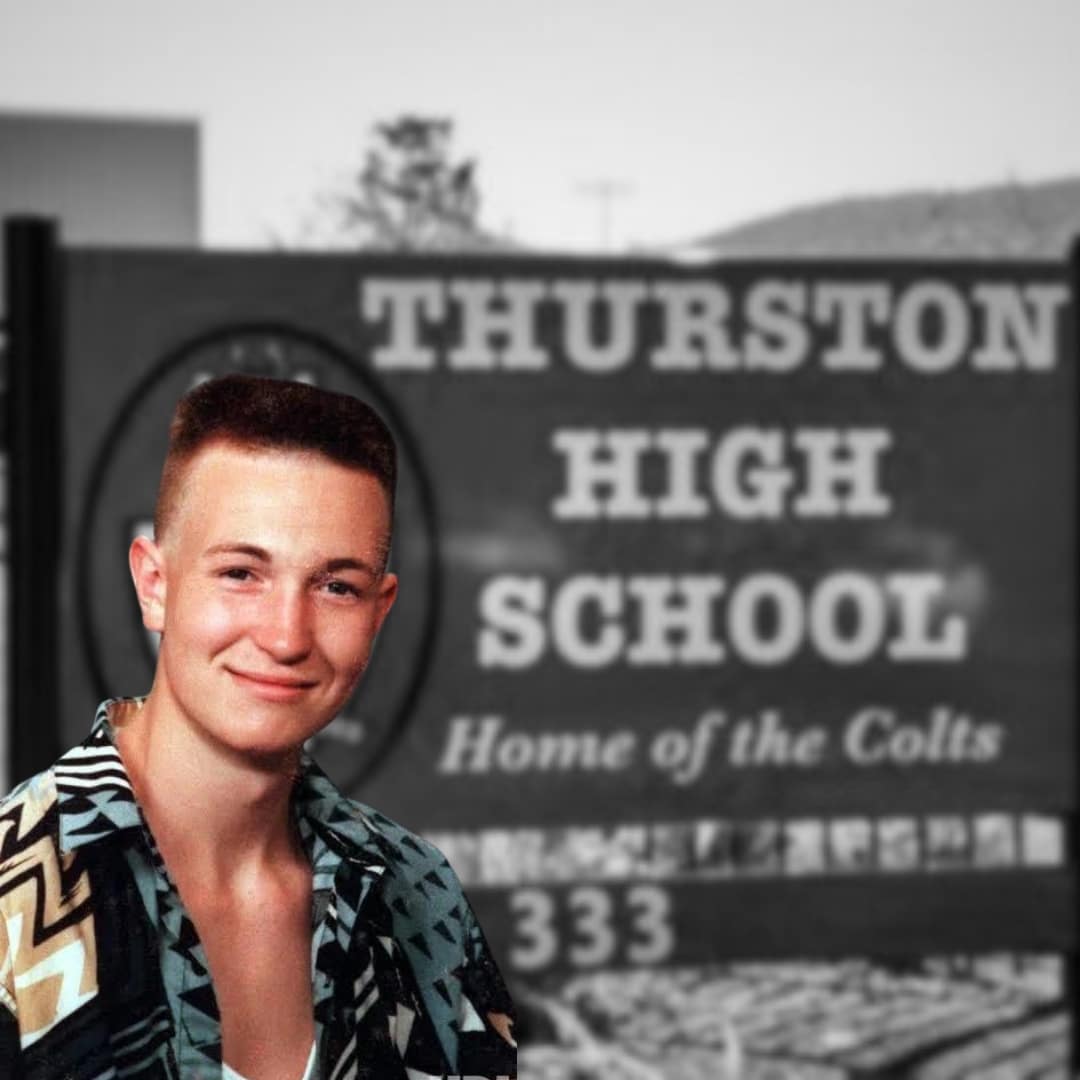
Few accounts are as harrowing as the actions taken by Jacob Ryker at Thurston High School on a day that would imprint itself upon the collective memory of Springfield, Oregon.
On May 21, 1998, the then-17-year-old Ryker, already wounded by gunfire, chose to act rather than cower, embodying the sheepdog mentality of protecting the flock at considerable personal risk.
This initial glimpse into Jacob's confrontation with mortal danger not only underscores the critical role of individual bravery in the face of collective peril but also raises contemplative questions about the preparedness of our institutions and the potential within each person to act decisively when circumstances are at their most dire.
As we consider the fabric of such a narrative, one cannot help but ponder the threads of character, courage, and the human spirit that converge in moments that call for immediate, selfless action.
Jacob Ryker, whose courage shone brightly during the harrowing events at Thurston High School, was born and raised in the close-knit community of Springfield, Oregon, where he attended local schools and grew into a responsible and spirited young adult. The very halls of Thurston High, where he attended as a student, rooted his early life and background in presence of mind and maturity.
On the fateful morning of May 21, 1998, a terrifying ordeal awaited two students at Thurston High. As shots rang out in the school cafeteria, chaos ensued. Amidst the panic, Jake was sitting with his peers, his daily routine catastrophically interrupted. But it was here, in these moments of crisis, that Ryker's extraordinary character manifested. Despite sustaining injuries, he courageously tackled the gunman, an act of valor that decisively ended the rampage and undoubtedly saved lives.
The Thurston High School Shooting left an indelible mark on the community of Springfield, but it was the actions of individuals like Jacob Ryker that revealed the profound bravery and swift action of young students in the face of unimaginable adversity.
On May 21, 1998, amidst the terror that unfolded within the walls of Thurston High School, student Jake Ryker's decisive intervention became a defining moment of courage and quick-thinking that brought an end to the active shooter situation. Jacob Ryker, then only 17, was in the school cafeteria when the shooting commenced. Though wounded, he did not hesitate. Proactive rather than passive, Jake led the effort to subdue the assailant, displaying remarkable bravery that likely saved many lives.
In the harrowing scenario where 62 rounds were ultimately fired, the actions of Ryker shone as a beacon of heroism. His determination to stop the Thurston High shooter was a palpable demonstration of a hero who responded proactively in the face of extreme danger. Known as the Day of Bravery, this event highlights the critical impact of individual valor and the importance of immediate action during crises.
Jake's initiative not only neutralized the immediate threat but also set a precedent for preparedness and response to violence in educational settings. His example continues to inspire and educate others on the importance of dynamic response strategies in ensuring the safety of communities everywhere.
In the wake of the Thurston High School incident, the courageous actions of Jake Ryker have left a profound effect on the discourse surrounding school safety and the importance of proactive responses to such crises. When the tragedy occurred, Jake's instinctive response to confront the shooter was a pivotal moment that undoubtedly played a role in mitigating casualties. His effort was not only heroic but also a practical demonstration of how to respond proactively to stop an active shooter.
The aftermath and impact of Jake's actions have been significant. They served not only as a source of inspiration but also as a catalyst for change in how schools and communities prepare for potential violence. Following the incident, the formalization of ALICE strategies reflected an evolved understanding of the importance of individuals taking an active role in their own safety. Ryker, the hero, demonstrated the effectiveness of these strategies, which have been successfully implemented in various emergencies.
It is important to highlight individuals like Jake Ryker, whose bravery and quick thinking provide valuable lessons in preparedness. His legacy influences the ongoing development of training programs designed to enhance community safety and empower others to act decisively during critical moments.
Debates on civilian intervention in shootings frequently reference Jacob Ryker's brave actions, emphasizing the importance of situational awareness, intervention training, and psychological preparedness to boost survival instincts and inform policy changes.
Jacob Ryker's military background likely enhanced his tactical response and decision-making capabilities. His crisis training, leadership role experience, and fear management skills, coupled with physical strength, may have fortified his courageous intervention.
Since the incident, Jacob Ryker has engaged in survivor activism, pushing for educational programs on crisis intervention and supporting legislative changes aimed at improving school safety and enhancing community resilience in gun control debates.
In the years since, civic awards, local tribes, and recognition as a hometown hero have honored Ryker's recognition. Memorial ceremonies, annual remembrance events, and community fundraisers honored him, alongside scholarship establishment and commemorative plaques.
It is unknown what specific psychological effects Jacob Ryker has experienced. However, documented instances of heroic trauma often include PTSD effects and survivor guilt. Individuals manage these through therapy processes, resilience training, and the aid of support networks, which are vital for psychological recovery and mental resilience.
Jacob Ryker's courageous actions during the Thurston High School shooting exemplify the potential of individual heroism in the face of extreme danger. His willingness to confront the shooter, even while injured, underscores the importance of preparedness and the human capacity to act decisively to protect others.
Ryker's intervention not only saved lives but also served as a critical case study in enhancing safety protocols and training in educational institutions, reinforcing the value of proactive responses in crisis situations.
Riley Howell: Profile of a Sheepdog says:
[…] Howell's bravery highlights the importance of individual action during crises, as exemplified by Jacob Ryker's intervention in similar […]